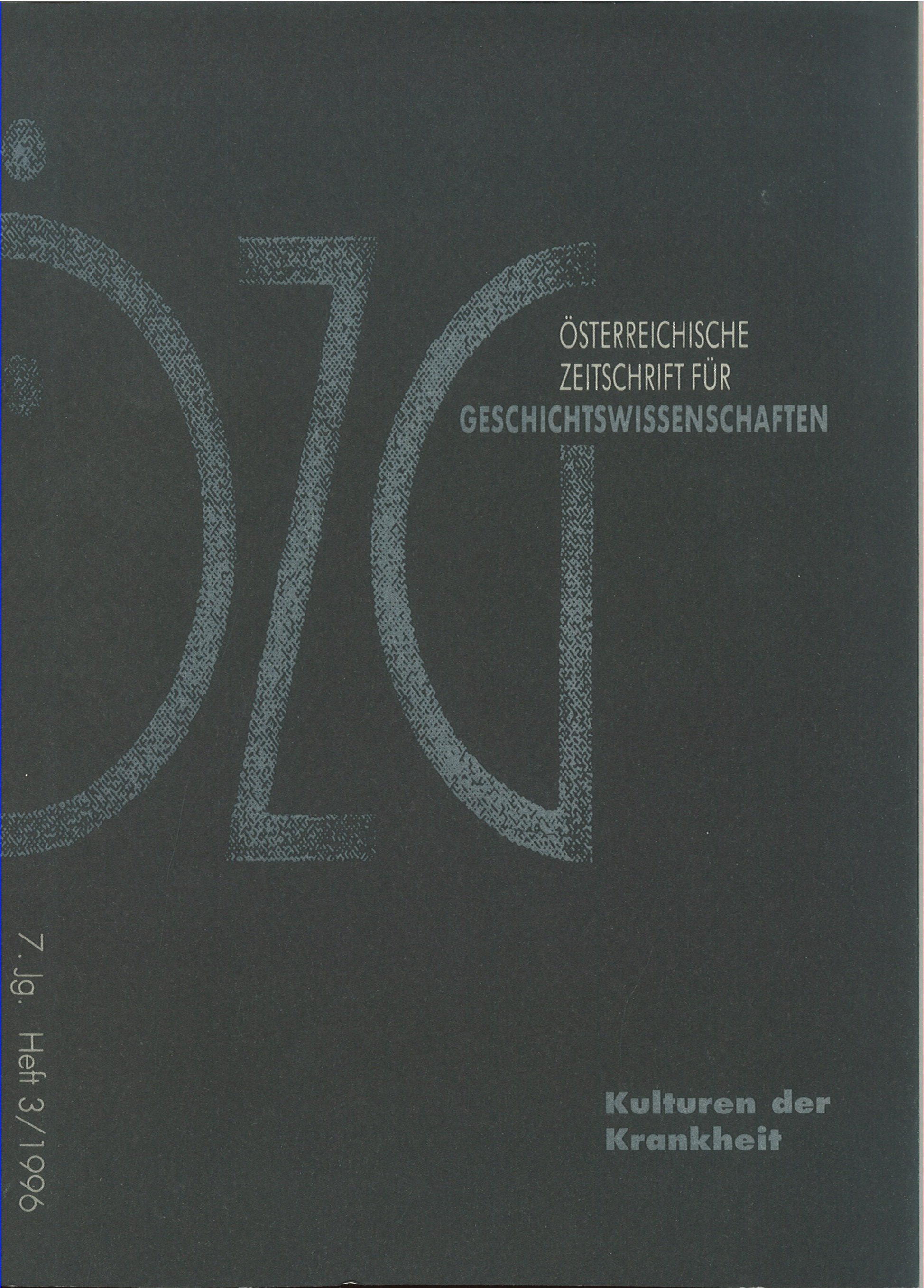„Mein äskulapisches Orakel!“
Patient letters as a source for the cultural history of patient experience in the 18th century
DOI:
https://doi.org/10.25365/oezg-1996-7-3-5Abstract
In this article, letters written by patients in the late 18th century asking the famous Swiss physician Tissot for medical advice are used to illustrate the extensive amount of space that contemporary medicine devoted to the patient's own expcrience and interpretation of disease. The individual perception of physical and psychological changes was in fact a highly selective process, which was predominantly shaped by prevailing concepts of humoral and nervous pathology. These concepts seem to have owed much of their appeal to bourgeois notions of „sensitivity“ and the ability to attain perfect health by means of a rational, „civilized“ lifestyle. The attempts made by certain patients to make sense of their disease (in some cases by drawing on Tissot's repression theory relating to the diseases stemming from masturbation) illustrate that the creation of attractive explanatory models was a particularly efficient means of facilitating medical acculturation which at the same time helped to further the internalisation of behavioural norms.


